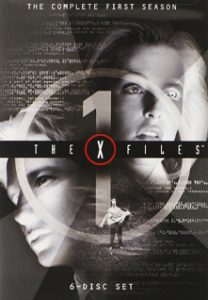Since I have for some bizarre reason watched every episode of “Supergirl” (now in Season 3) and “Riverdale” (now in Season 2), I might as well get a blog post out of it by asking: “Which is the dumber show?” It’s kind of like deciding whether the Patriots or Eagles are the team worth rooting for in the Super Bowl: It’s a brain-spinner.
Watch them as if they are comic books
Both series have a narrow window by which I forgive them. When I watch a scene that doesn’t reflect reality (which is most scenes), I imagine reading the same scene on a comic-book page, and it always plays better that way. I am more forgiving of silliness in comic books because they allow me to pause and imagine the scene in its best possible light. Television is comparatively a sledgehammer: We’re brusquely exposed to acting and plot points in a brisk sequence. In short, it’s harder to forgive stupidity on TV.
“Supergirl” (8 p.m. Eastern Mondays, CW) starts from a flawed premise where it wants to have it both ways: Supergirl (Melissa Benoist) is universally beloved, but she acts like a put-upon outcast. Rather than exploring this character flaw, the show treats Kara like she is of sound mind. Her sister and friends sympathize with and reinforce the validity of her “plight.”

“Supergirl” Season 3 (2018)
Mondays, CW
Creators: Ali Adler, Greg Berlanti, Andrew Kreisberg
Stars: Melissa Benoist, Chyler Leigh, David Harewood
“Riverdale” Season 2 (2018)
Wednesdays, CW
Creator: Roberto Aguirre-Sacasa
Stars: Lili Reinhart, Camila Mendes, Cole Sprouse
Beyond the premise, the show doesn’t get much smarter. “Supergirl” is often a combination of scenes so dumb they don’t resemble reality, and other scenes that are so telegraphed or overexplained that I have to assume the writers think the audience is dumb.
Last week’s episode, “For Good,” is a prime example. CatCo publisher Lena Luthor (Katie McGrath) threatens to kill National City’s most twisted corporatist, Edge (a slumming Adrian Pasdar), in order to get a confession out of him. The DC TV universe comprises multiple Earths, but that would not hold up in a court of law on any Earth, certainly not “Supergirl’s,” which preaches the sanctity of law and order.
Overexplanations
When it’s not leaping outside the bounds of common sense, “Supergirl” overexplains things. Every episode starts with a long (very long by today’s standards) monologue where Supergirl outlines the series’ premise. Even though the concept is still simple (she’s an alien, Superman got here first, she works for the DEO), I swear Benoist’s reading of the monologue has slowed down this season.
More specifically, look at the scene from last week when James (Mehcad Brooks) chases down the man who poisoned Lena’s coffee. The man looks back frantically and runs, letting James — and the dimmest viewer imaginable — know beyond a doubt that this is the culprit.

Long-time viewers are familiar with the trope of Supergirl, Alex, Winn, James and Hank standing around DEO headquarters delivering pre-battle exposition. These scenes do have a comforting familiarity to them, but they are also yawners: I know I need to grasp the information in order to understand the dynamics of the coming fight, but it’s hard to stay engaged. Sometimes I rewind because my mind wandered.
Although Winn seems to have gone full-time at the DEO, Kara and James somehow also work at CatCo’s flagship newspaper, the National City Tribune. It has every indication of being run like a high school paper, where a scheduled press conference is treated like a hot story. Here’s a line from James, the editor, in the last ep: “The Parks Conservancy is having a black-tie gala tonight. All the city’s major donors are gonna be there. I feel like an ace reporter would be able to find a story.”
In that block of dialog there are two problems: 1) A professional paper already would have secured credentials to a big gala; there would be no need to enter with brute force, as Kara does. And 2) Galas are not good places for stories. They have to be covered, yes, but great scoops do not come out of them.
That’s not how newspapers work
On the other hand, the National City Tribune looks like the Ben Bradlee-era Washington Post compared to the Riverdale Register, owned and operated by Betty’s parents, Hal and Alice Cooper, on “Riverdale” (8 p.m. Eastern Wednesdays, CW).
The Coopers use the paper entirely as a rag to slam their hated rivals, the Blossoms, plastering headlines such as “Cheryl Blossom is guilty as sin!” (She wasn’t.) Betty (Lili Reinhart) inherits these reporting tactics from her folks. She publishes her mom’s ancient arrest report in the Riverdale High paper, The Blue and Gold. (It’s a dysfunctional family, to say the least.)
There are ways to write stories like “Cheryl Blossom is guilty as sin!” to avoid being sued for libel, with misleading rather than outright false headlines. It’s how the National Enquirer avoids being sued out of existence; their editing team is extremely careful with every word choice.
At one point in Season 1, Hal thinks Alice is going too far with a vendetta piece and he fires her; she retaliates by throwing a brick through the office window. But Hal’s one discerning moment aside, there’s little indication that the Coopers are diligent about what they print.
Furthermore, a paper with such blatant Coopers vs. Blossoms bias would not be seen as a solid news source even by a dimwitted population. But the alternative paper is even less popular. The Blue and Gold has an extremely small staff – the prolific Jughead Jones (Cole Sprouse), Betty and gossip columnist Kevin – that uses it as a personal loudspeaker.
Logic problems
If a paper would cease to exist without Jughead’s passion (as is also the case with Southside High’s The Red and Black during his tenure there), one must assume the advertising and readership numbers are quite low. Yet when, in a recent episode, Jughead writes a piece highlighting Riverdale’s history as an Indian village overrun by the white man, his friend Toni (Vanessa Morgan) hates his guts for riling up the town. Suddenly, we’re supposed to see The Blue and Gold as an established opinion leader.
The “Riverdale” writers have set up this bizarre reality: Almost no one in Riverdale reads newspapers (and if they do, they can’t possibly take them seriously), yet newspaper articles regularly rile up the town.
On a related note, we have Jughead’s voiceovers from his in-progress true-crime tome, nicely broken down in Katharine Trendacosta’s iO9 analysis “ ‘Riverdale’s’ Jughead is a shitty writer.” Some have persuasively argued that “Riverdale’s” writers intend to portray Jughead as a full-of-himself high school journalist; viewers see he isn’t such hot stuff, and therefore we get a kick out it.
But beyond his skills (or lack thereof) as a wordsmith, Jughead is an inexplicable character, and this erodes the argument that the “Riverdale” writers know what they’re doing. A new member of the Southside Serpents, Jughead seeks to prove himself by regularly acting tough and doing aggressive (and ill-advised) things like torturing the Serpents’ in-house legal adviser.
Visually, it’s ridiculous to see the slight Sprouse standing up to massive gang members such as the aptly named Tall Boy, who could place his hand on Jug’s head and drive him into the solid ground like a post if he was so inclined.
‘Riverdale’ could’ve been fun
“Riverdale” could’ve been a fun series that contrasts the homey outward appearance of Small Town, USA (as per the vintage Archie comics), with the darkness just underneath the surface. However, “Riverdale” does not have a homey outward appearance.
Like “Gossip Girl” on steroids, everyone backstabs everyone else, including family members. (Archie and his dad like and care about each other, making them a glaring exception.) And I haven’t even mentioned the serial killer that’s still out there. “Riverdale” is not a deeper version of the Archie comics, it’s a straight opposite of the Archie comics.
Meanwhile, the excuse that “Supergirl” is a lovably innocent comic-book adaptation took a hit with the January launch of another DC series, “Black Lightning,” which manages to be 100 percent a comic-book show and 100 percent respectful of its audience. “Black Lightning” proves you can have it both ways, and immediately makes me feel like “Supergirl’s” time has passed.
Although I’m unsure if they are aiming for some sort of stylized silliness or not, “Riverdale’s” writers seem to be doing their best, and therefore it earns its stupidity more honestly. I give “Supergirl” a slight edge as the dumber show, because it seems to be purposely shallow; it must be nearly as dull to write as it is to watch.
“Supergirl” (Season 3 so far): 2 stars
“Riverdale” (Season 2 so far): 2.5 stars

